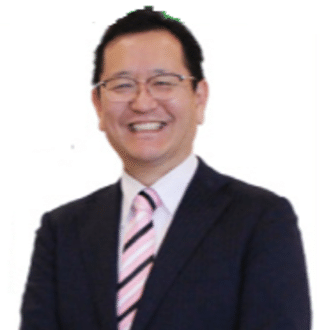
西側諸国はロシアとの協議を決してやめてはならない - ショルツ氏/RT(ロシアトゥデイ)より
West should never quit talks with Russia – Scholz
西側諸国はロシアとの協議を決してやめてはならない - ショルツ氏
Putting an end to the ongoing conflict in Ukraine would be much harder without a dialogue with Moscow, the German chancellor warns
モスクワとの対話なくしてウクライナ紛争の終結は困難である、とドイツ首相は警告している。
The Western nations should never walk out of talks with Moscow, regardless of how big the "differences" between the two sides are, German Chancellor Olaf Scholz told Germany’s SZ newspaper in an interview published on Friday. Dropping out of any talks with Moscow would only make the task of ending the ongoing conflict in Ukraine harder, the chancellor believes.
ドイツのオラフ・ショルツ首相は、金曜日に発行されたドイツのSZ紙のインタビューで、西側諸国は、両者の「違い」がどれほど大きいかにかかわらず、モスクワとの会談から手を引くべきでは決してない、と述べた。モスクワとの協議から離脱することは、ウクライナで進行中の紛争を終わらせる作業を難しくするだけだと、首相は考えている。
"What is important is that, despite major differences in [our] positions, we do not let the thread of talks with Russia be broken," Scholz said, adding that "if we do not talk, Russia would be even less likely to end the war."
"重要なのは、(私たちの)立場の大きな違いにもかかわらず、ロシアとの話し合いの糸を断ち切らせないことだ。"ショルツ氏は、"もし私たちが話し合いをしなければ、ロシアはさらに戦争を終わらせる可能性が低くなる "と付け加えた。
The chancellor still blames Moscow for its ongoing conflict with Kiev and maintains it is Russia that should be proactive in halting military action. Yet, the chancellor also advocates a negotiated solution rather than a military one. "For this, it will be necessary to talk," he told SZ.
首相は依然としてキエフとの紛争をモスクワの責任とし、ロシアこそ積極的に軍事行動を止めるべきだと主張している。しかし、首相は軍事的な解決ではなく、交渉による解決も提唱している。「そのためには、話し合いが必要だ」とSZに語った。
When asked about when there could be a "window for negotiations," Scholz said that "the time has actually long since come." The chancellor also expressed his hope that "once this war is over and we are dealing with a different Russia … capable of making peace, we may be able to live together again." He did not elaborate on what he meant by "a different Russia."
ショルツ首相は、「交渉の窓」はいつできるのかという質問に対して、「その時は、実はとっくに来ている」と述べた。首相はまた、「この戦争が終わり、平和を作ることができる別のロシアを相手にするようになれば、我々は再び一緒に暮らすことができるかもしれない」と期待を表明した。しかし、「異なるロシア 」とはどういう意味なのか、詳しくは語らなかった。
Scholz also and once again outlined Berlin’s position on arms deliveries to Ukraine, saying that Germany would send "modern weapons" to Kiev but would also seek to prevent a "direct confrontation between NATO and Russia" and would not take any steps in the field of military aid alone.
ショルツはまた、改めてウクライナへの武器供与に関するベルリンの立場を説明し、ドイツはキエフに「近代兵器」を送るが、「NATOとロシアの直接対決」を防ぐことも目指し、軍事援助の分野だけでは何の措置もとらないと述べた。
The German chancellor has repeatedly called for continued dialogue with Moscow, arguing that it was the only viable option for ending the fighting in Ukraine. Earlier in December, he defended his decision to "keep talking" to Russian President Vladimir Putin by saying he wants to live to see the moment when it would be possible "to get out of this situation."
ドイツ首相は、モスクワとの対話の継続を繰り返し求め、それがウクライナでの戦闘を終わらせるための唯一の実行可能な選択肢であると主張してきた。12月初めには、ロシアのプーチン大統領と「対話を続ける」という決断を、「『この状況から抜け出す 』ことが可能になる瞬間を見るまで生きていたい」と弁明している。
Scholz and Putin talked by phone on December 2. According to the Kremlin, the two discussed "different aspects of the situation in Ukraine." Scholz then said he "condemned the Russian airstrikes" against what he called "civilian infrastructure in Ukraine." In the Saturday interview with SZ, he also referred to these airstrikes as a "clear violation of international law."
ショルツとプーチンは12月2日に電話会談を行った。クレムリンによると、2人は 「ウクライナ情勢のさまざまな側面 」について議論したという。そして、ショルツは「ウクライナの民間インフラ 」と呼ばれるものに対するロシアの空爆を "非難する "と述べた。SZの土曜日のインタビューでは、これらの空爆を "明確な国際法違反 "とも言っている。
Russian forces have been targeting some of Ukraine’s energy infrastructure facilities since October. The Russian Defense Ministry believes these to be crucial for Kiev’s military capability.
ロシア軍は10月以降、ウクライナのエネルギーインフラ施設の一部を標的にしている。ロシア国防省は、これらがキエフの軍事力にとって極めて重要であると考えている。
いいなと思ったら応援しよう!

